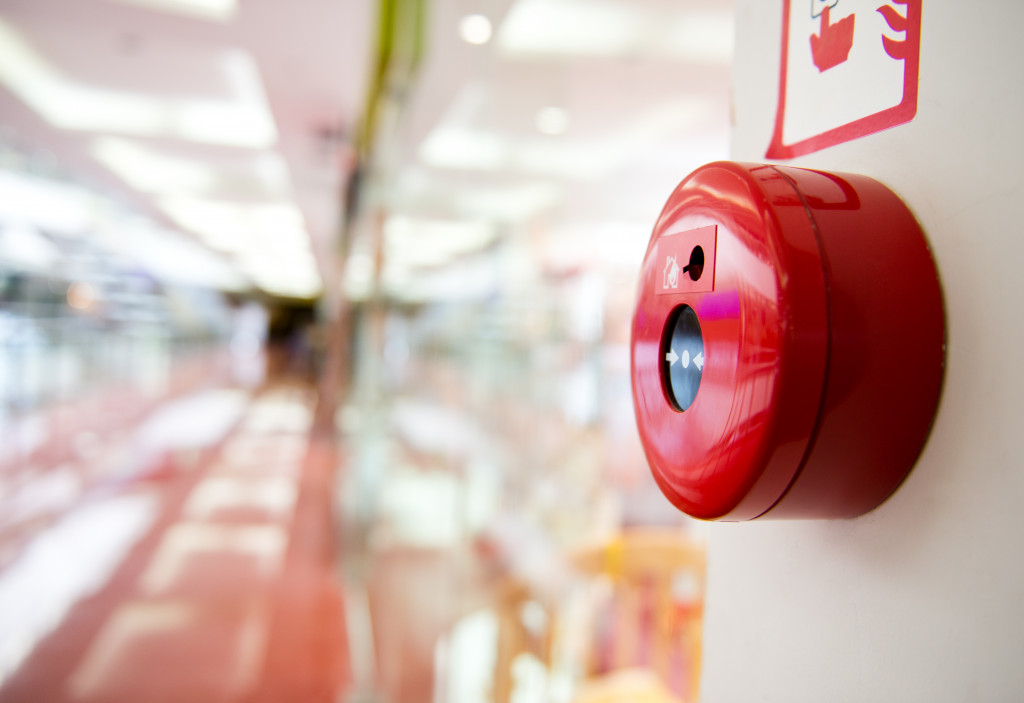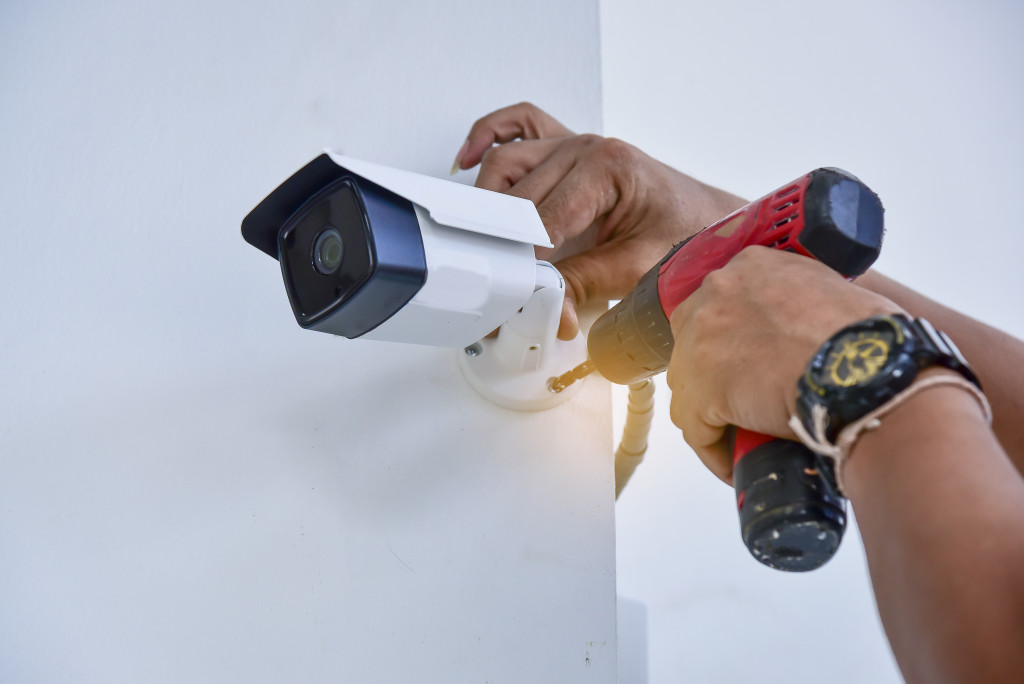- Hire an experienced electrical professional to provide quality commercial electrical installation and install AFCIs and surge protection devices.
- Install fire alarms and fire extinguishers in all building areas, as per local fire codes.
- Implement access control systems such as keypads, card readers, or biometric scanners to restrict entry into sensitive areas.
- Monitor the building for any fall hazards and air quality issues to ensure a safe and healthy environment.
Securing a commercial business establishment is a complex task that involves several steps. Implementing best practices to ensure the safety and security of the business is essential for success. Below are some tips on how you can make your business more secure:
Electrical Safety
Electrical safety should be a top priority when securing your commercial business establishment. Proper measures can help reduce the risk of fires or other electrical problems. Here are some tips on how to ensure electrical safety in your building:
Commercial Electrical Installation
It’s best to hire an experienced electrical professional to provide quality commercial electrical installation. These experts are well-versed in the electrical requirements for commercial buildings and will help ensure that your building meets all necessary safety standards. This way, you can ensure your electrical system is up to code and running safely.
Arc Fault Circuit Interrupters (AFCIs)
AFCIs detect and shut down any arcs caused by damaged wiring, which can potentially cause fires. Ensure all outlets have installed AFCIs and are regularly tested for proper operation. This will help prevent any potential damage caused by arc-related issues.
Surge Protection
Lightning and power surges can cause severe damage to your building’s electrical system. Install surge protection devices to guard against any potential surges that could damage your equipment. This will ensure the safety of your electrical system and the longevity of your business.

Fire Safety
Fires account for significant property damage and loss, so taking the necessary steps to ensure your business is fire-safe is essential. Here are some tips on the best practices for fire safety in your business:
Installing Fire Alarms
Ensure each area within the building has its smoke alarms installed, according to local fire codes. Smoke alarms should be located near common areas and other main areas such as office rooms, hallways, and stairwells. Check regularly that smoke alarms work properly and change batteries every six months or so.
Fire Extinguishers
All areas within the building—including bathrooms, garages, and attics—should also have one or more fire extinguishers available at all times in case of a fire emergency. Fire extinguishers should be inspected monthly to ensure they are up-to-date and ready for use in an emergency.
General Security
In addition to electrical and fire safety, general security measures should also be taken to help secure your commercial business establishment. Many of these measures are common sense and should be implemented to help ensure the safety of your business.
Access Control Systems
Installing access control systems such as keypads, card readers, or biometric scanners can help protect entry into restricted areas of the building from unauthorized personnel. Access control systems provide an added layer of security where only authorized individuals have access to certain areas within the building, like offices, warehouses, or garages. This ensures that only those with permission can access sensitive business areas.

Security Cameras
Investing in security cameras and video surveillance systems is another way to help protect your business. Security cameras can monitor activity inside and outside the building and provide valuable evidence in the event of a break-in or other security breach.
Falls Prevention
Take steps to prevent any potential falls in your commercial business establishment. Inspect the building regularly for any areas that may be fall hazards and take measures to correct them. This includes ensuring all stairs, ramps, walkways, and other high-traffic areas are well-maintained and free of debris or other trip hazards.
Air Quality
Lastly, ensuring proper air quality is essential for a safe and healthy work environment. Check your building regularly to ensure there are no excessive levels of dust, pollen, or other airborne particles. This can help avoid any potential health risks for employees and customers alike.
By implementing best practices in your establishment, businesses can significantly reduce their chances of facing potential hazards during their day-to-day operations. Even though these practices might require additional investments upfront, companies could save themselves from significant financial losses if something does go wrong. Therefore, investing in security measures for commercial establishments seems like a reasonable choice for any responsible business owner looking out for the best interests of their company. So, make sure to review and implement the best practices outlined above to help keep your business safe and secure.


